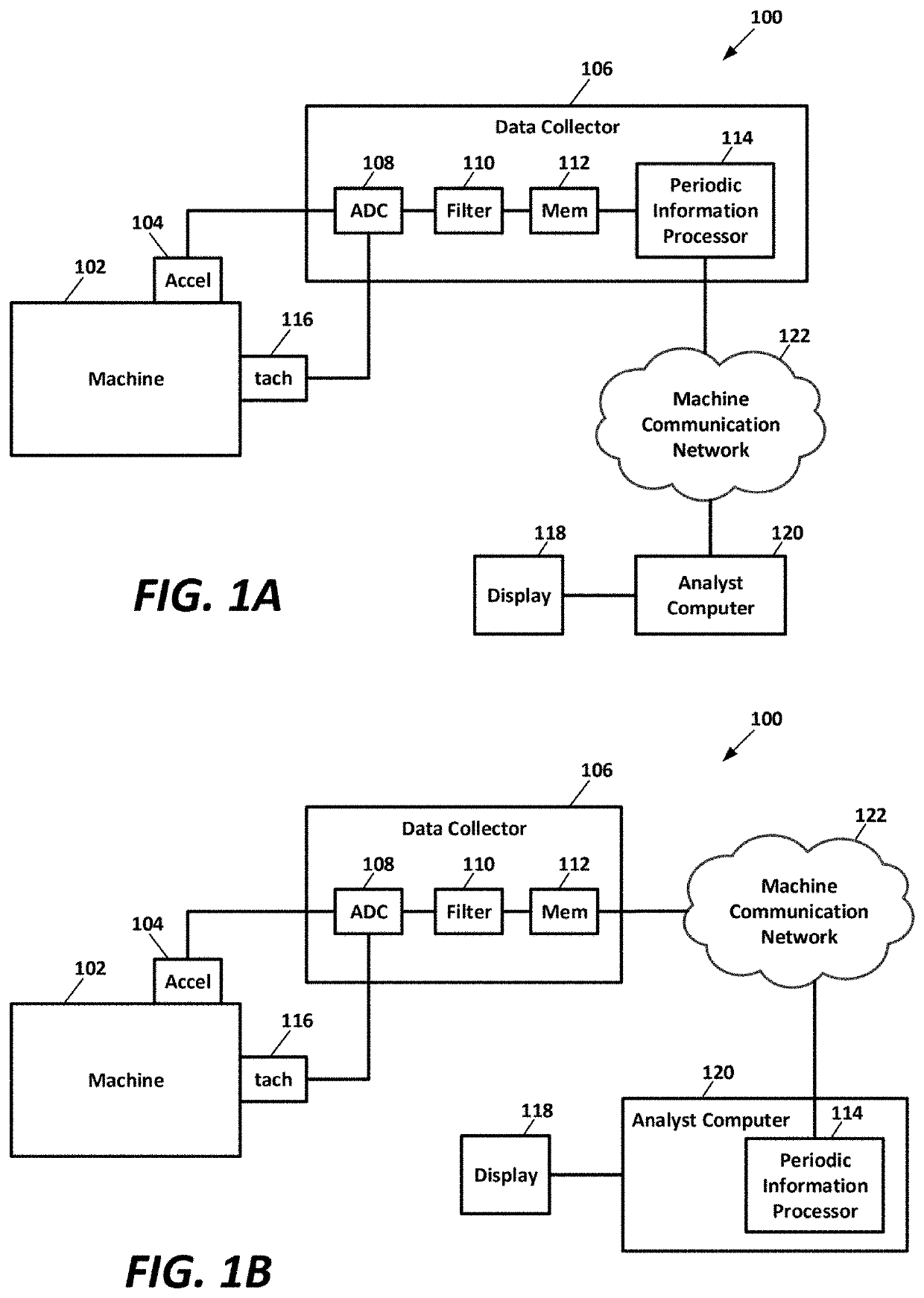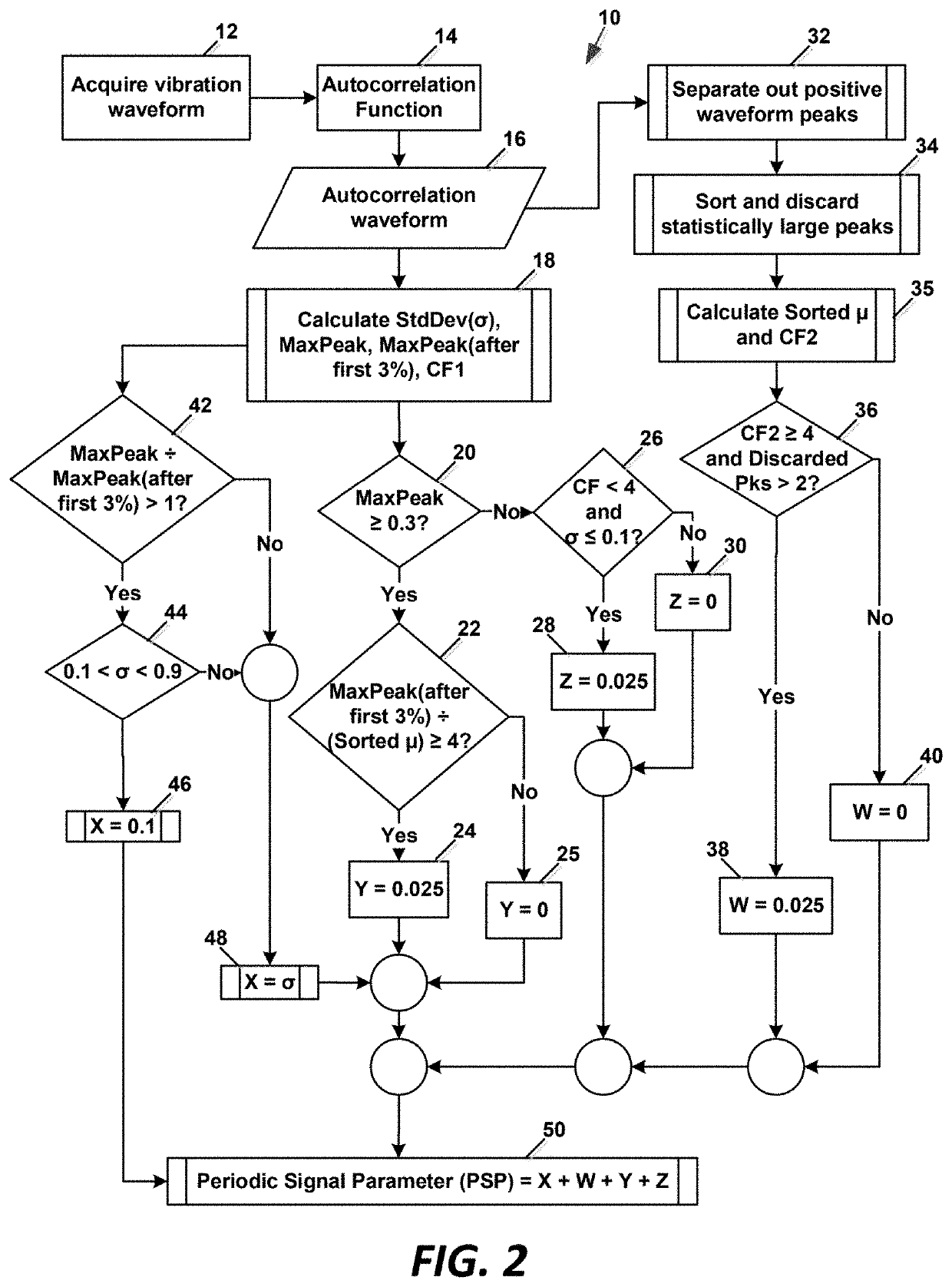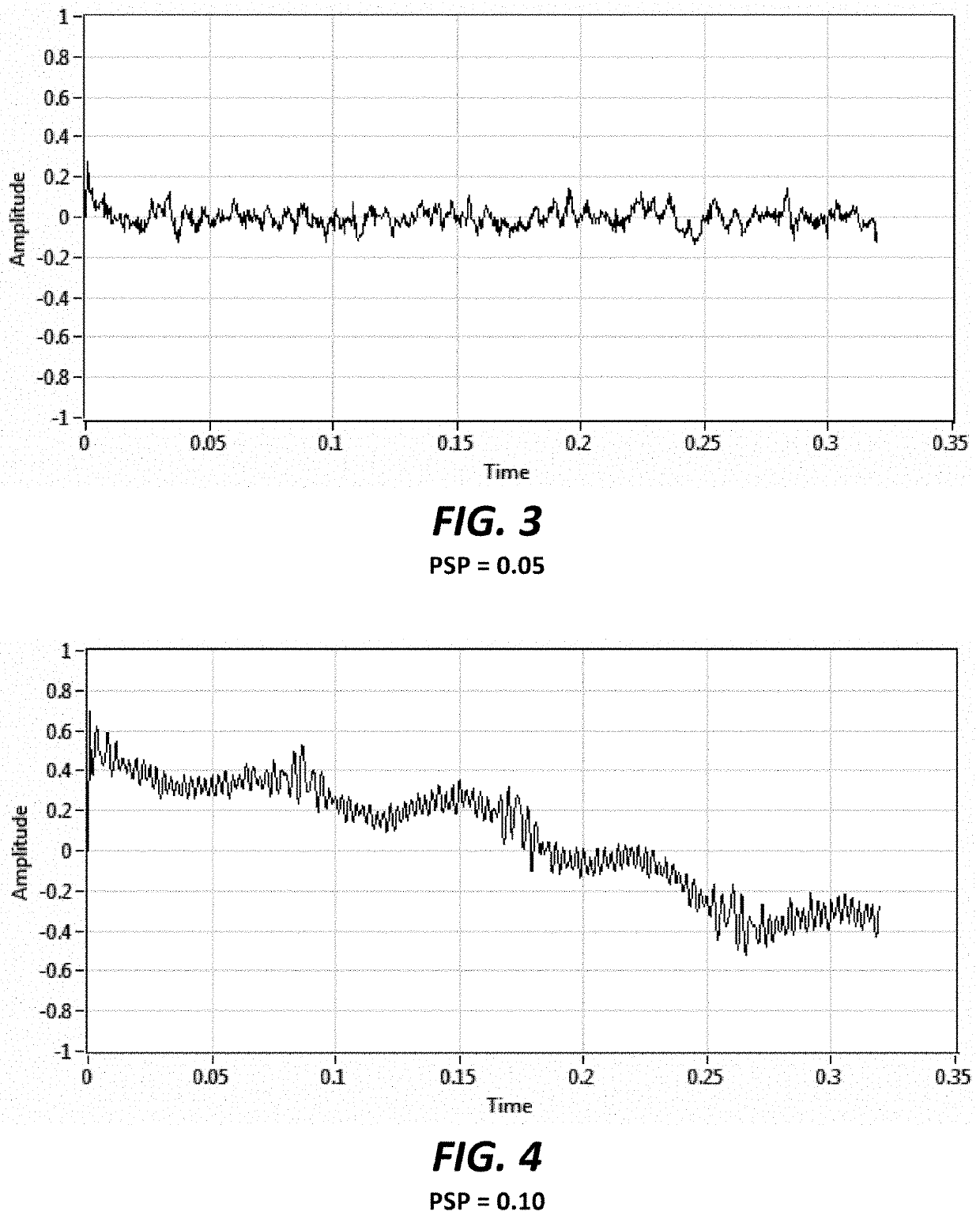System for separating periodic frequency of interest peaks from non-periodic peaks in machine vibration data
a technology of machine vibration and periodic frequency of interest, applied in the analysis of signals, machine parts testing, structural/machine measurement, etc., can solve the problems of suspected lubrication problems, excessive noise in the pipe, etc., and achieve the effect of easy visualization of the condition
- Summary
- Abstract
- Description
- Claims
- Application Information
AI Technical Summary
Benefits of technology
Problems solved by technology
Method used
Image
Examples
first embodiment
PIP Generation—First Embodiment
[0080]In a first embodiment, a signal is collected from plant equipment (e.g. rotating or reciprocating equipment) and is processed using two different sets of analysis techniques as depicted in FIG. 8.
[0081]First, a waveform is acquired (step 60 of FIG. 8), such as a vibration waveform acquired using the system depicted in FIG. 1A. If employing a high-pass filter and peak-hold decimation to an oversampled waveform to capture impacting information (such as using the PeakVue™ process), this may be a calculated waveform. An FFT of the waveform is taken (step 62), resulting in a vibration spectrum (VS) 64 with frequency on the X-axis and amplitude on the Y-axis, an example of which is shown in FIG. 9.
[0082]The waveform from step 60 is also autocorrelated (step 66) to generate a waveform referred to herein as the autocorrelation waveform 68, having time on the X-axis and the correlation factor on the Y-axis. The autocorrelation process accentuates periodic...
second embodiment
PIP Generation—Second Embodiment
[0095]In a second embodiment, a signal is collected from plant equipment (i.e. rotating or reciprocating equipment) and is processed using the method 300 depicted in FIG. 20.
[0096]First, a waveform is generated (step 302 of FIG. 20), such as a vibration waveform acquired using the system depicted in FIG. 1A. If employing a high-pass filter and peak-hold decimation to an oversampled waveform to capture impacting information (such as using the PeakVue™ process), this may be a calculated waveform. An FFT of the vibration waveform is taken (step 304), resulting in a vibration spectrum 306 with frequency on the X-axis and amplitude on the Y-axis, an example of which is shown in FIG. 9. The vibration spectrum 306 is also referred to herein as the vibration spectrum to differentiate from the autocorrelation spectrum discussed hereinafter.
[0097]The waveform from step 302 is autocorrelated (step 314) to generate an autocorrelation waveform 316, having time on ...
third embodiment
PIP Generation—Third Embodiment
[0164]In a third embodiment, a signal is collected from plant equipment (i.e. rotating or reciprocating equipment) and is processed using the method 500 depicted in FIGS. 29A and 29B.
[0165]First, a waveform is generated (step 502 of FIG. 29A), such as a vibration waveform acquired using the system depicted in FIG. 1A. If employing a high-pass filter and peak-hold decimation to an oversampled waveform to capture impacting information (such as using the PeakVue™ process), this may be a calculated waveform. An FFT of the vibration waveform is taken (step 504), resulting in a vibration spectrum 506 with frequency on the X-axis and amplitude on the Y-axis, an example of which is shown in FIG. 9. The vibration spectrum 506 may also be referred to herein as the original spectrum to differentiate from the autocorrelation spectrum discussed hereinafter.
[0166]The waveform from step 502 is autocorrelated (step 514) to generate an autocorrelation waveform 516, hav...
PUM
 Login to View More
Login to View More Abstract
Description
Claims
Application Information
 Login to View More
Login to View More - R&D
- Intellectual Property
- Life Sciences
- Materials
- Tech Scout
- Unparalleled Data Quality
- Higher Quality Content
- 60% Fewer Hallucinations
Browse by: Latest US Patents, China's latest patents, Technical Efficacy Thesaurus, Application Domain, Technology Topic, Popular Technical Reports.
© 2025 PatSnap. All rights reserved.Legal|Privacy policy|Modern Slavery Act Transparency Statement|Sitemap|About US| Contact US: help@patsnap.com



